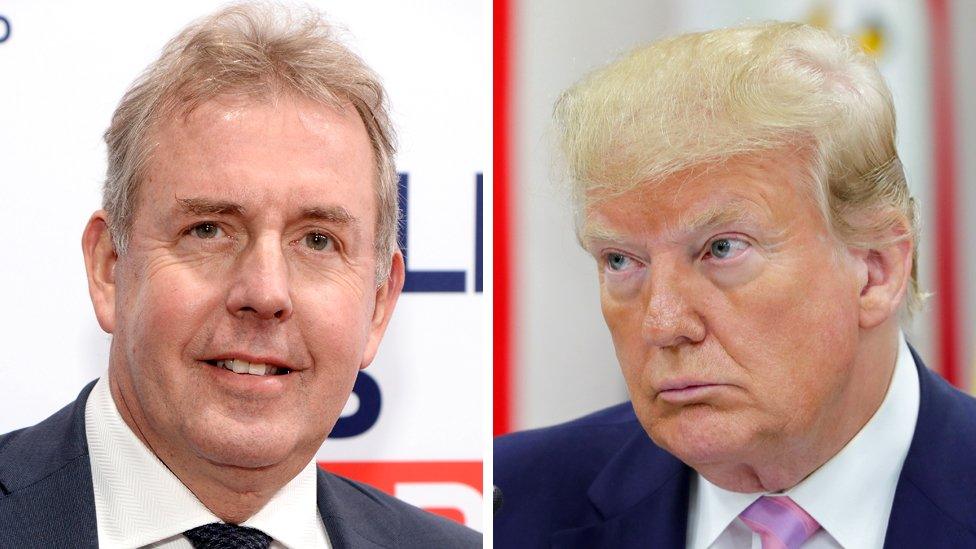Emily Maitlis: Ex-US ambassador Kim Darroch 'showed little fury'
- Published
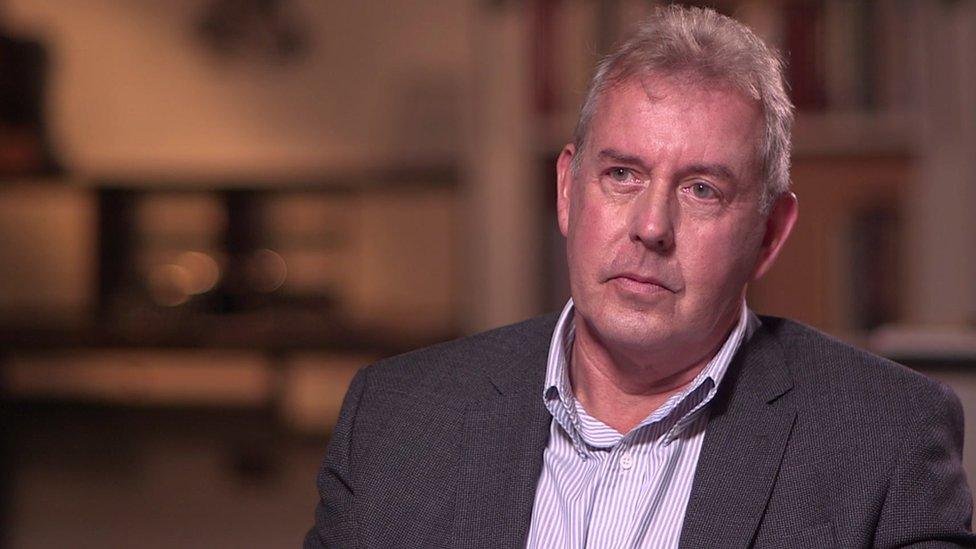
Sir Kim Darroch tells Newsnight he "does not regret" his criticism of President Trump
There's always a sticky moment when you make the approach for a first interview.
I knew that Kim Darroch had gone through a pretty bloody time.
His face, as UK ambassador to the US, had been plastered all over the front pages when his confidential diplomatic cables were leaked to the British press.
He had written bluntly of his perception of the Trump presidency and the man himself.
He used words like "inept", "deeply dysfunctional" and "radiating insecurity", phrases that were never meant to be public.
Perhaps from the first moment those became headlines, as the UK's man in Washington, he was a dead man walking.
Certainly, the president's response showed he no longer wanted to work with the ambassador - bluntly he refused to do so.
More disconcertingly, the man who was then vying to be prime minister - Boris Johnson - had failed to give Kim Darroch his full support when asked about it in a televised debate.
So, the ambassador resigned.
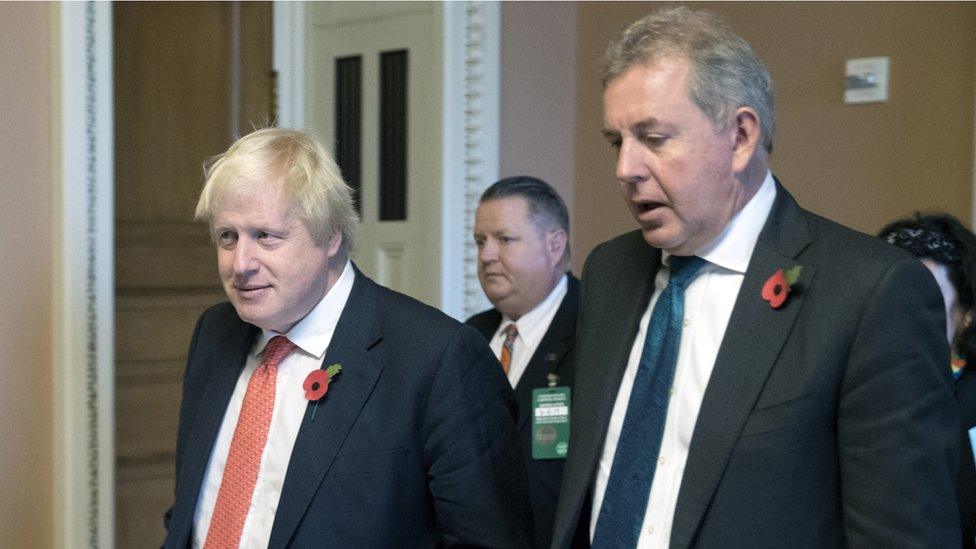
Lord Darroch with then Foreign Secretary Boris Johnson in 2017
This afternoon, more than a year after that resignation, we met for the first time.
I was curious as to whether the anger that is palpable in parts of the book - he talks for example about wanting to meet the leaker "in a prison waiting room" - would be there in his conversation.
He also described his wife Vanessa as "erupting in fury" at Mr Johnson's public failure to support him in the role.
I couldn't help wondering if he used his wife's emotions as a proxy for his own.
In person, Lord Darroch showed very little fury.
Perhaps time had diluted what he felt.
Or perhaps he knew it would give off the wrong impression from a man who - at the heart of the diplomatic service - had always been the model of tact and discretion.
The time when I saw most emotion from him was not when he recounted his own story, but when he offered his thoughts on the main story of the day - the government's proposal to rewrite parts of the Brexit Withdrawal Agreement.
Here he was at his most vocal and impassioned, telling me that if Britain did that we could not expect to be treated as a serious member of the international community.
It would, he told me, have huge consequences for our relationship with the EU and in any future trade deal with the US.
We talked for more than an hour - and in some ways it's hard revisiting a story a full 15 months after it's broken.
In other ways, the perspective you get with that time and distance is invaluable.
There are things I could never have asked - and he would never had answered - if it had been rushed through straight away.
The patterns, the personalities, the repercussions sometimes become much clearer if you're allowed the hindsight to reflect.
The interview will be aired on BBC's Newsnight at 22:45 BST on BBC Two, or on iPlayer
- Published8 September 2020
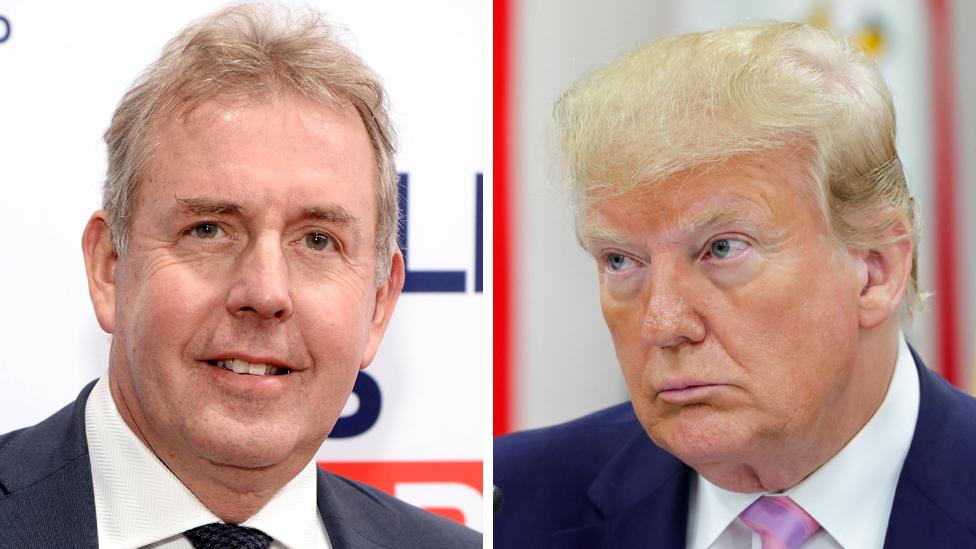
- Published8 September 2020
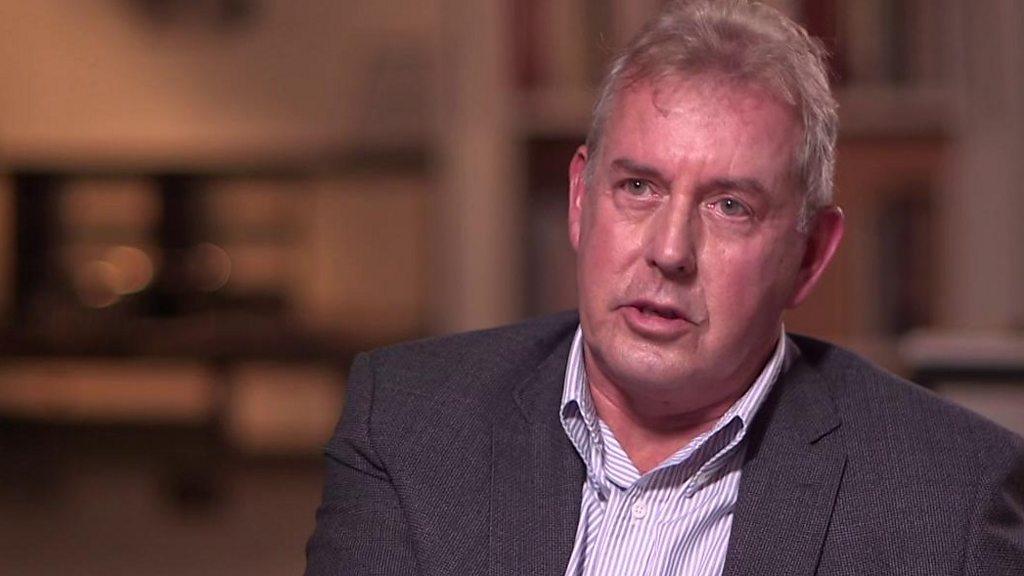
- Published13 July 2019
